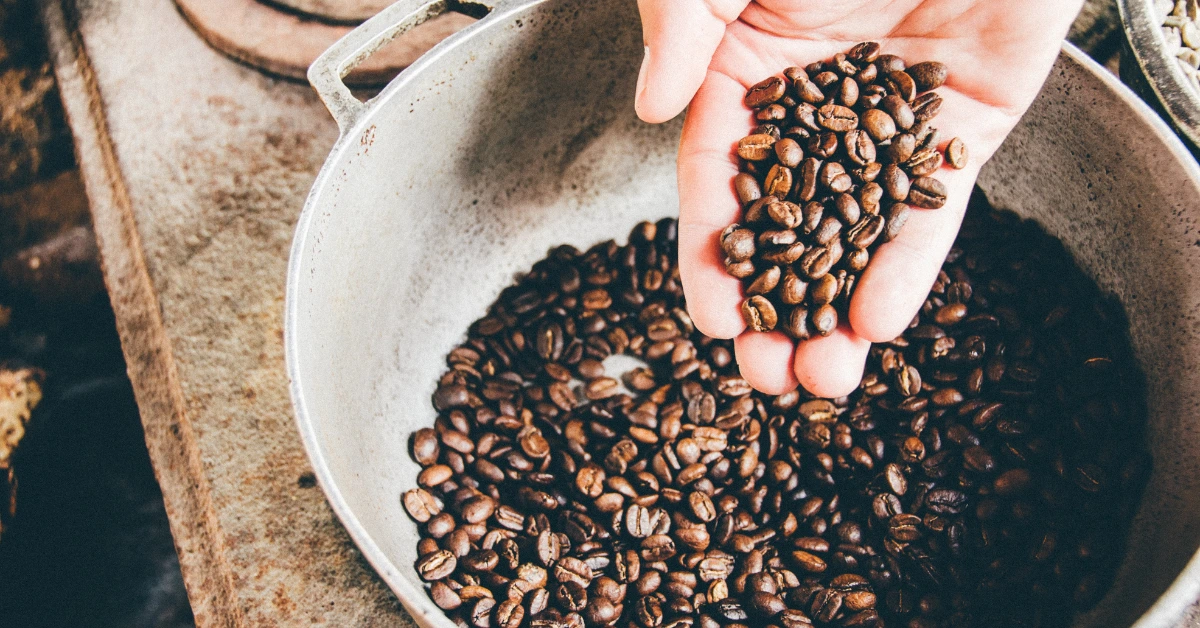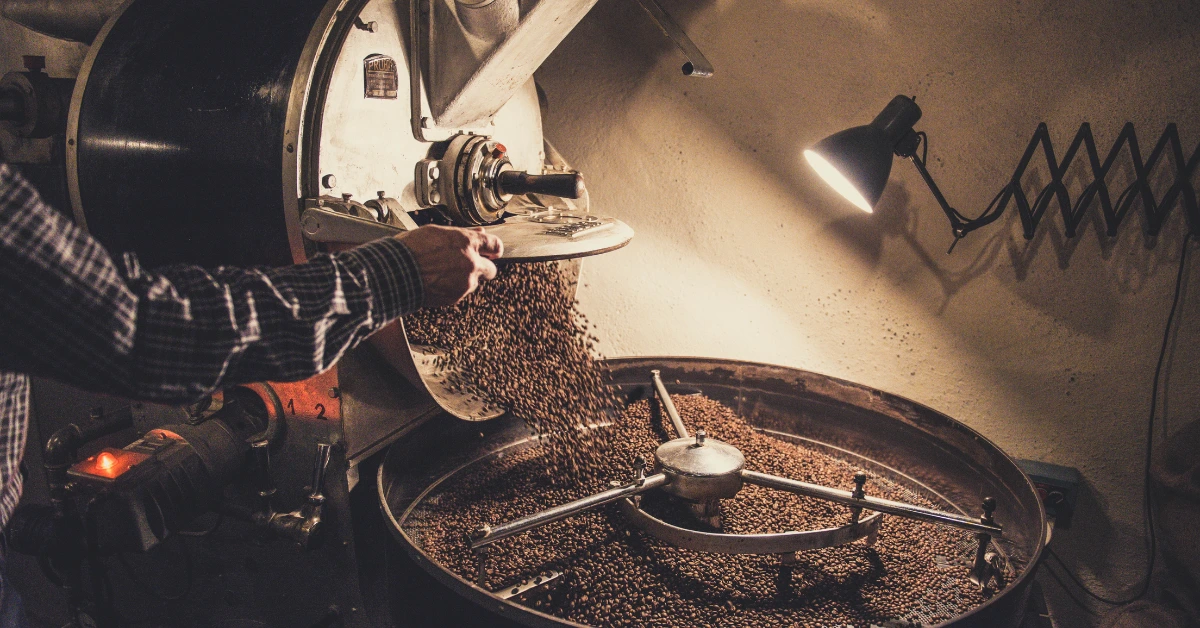
Welcome to our coffee blog! If you’re here, you’re likely either a coffee lover or considering becoming one. Trust me, I’ve been there too. When you’re in that position, one burning question often arises: How coffee affects the brain? Well, I’ve done some research to shed light on this topic, and I’m here to share it with you.
Coffee contains a key ingredient called caffeine, which handles its effects. When we consume coffee, the caffeine from coffee slows down the absorption of adenosine, a substance that promotes sleep and reduces nerve activity. By taking the place of adenosine, caffeine increases nerve activity. which results in high awareness, a faster heart rate, and improved productivity.
So, I assume you’re a coffee enthusiast or curious about its impact on the brain. Join us to explore the fascinating world of coffee and its effects on the brain.
Discovering the Coffee-Brain Connection: How Coffee Affects the Brain Instantly?

Coffee contains a lot of caffeine, and this caffeine is like another chemical called adenosine. Adenosine handles calming the nerves, relaxing the body, and making you feel sleepy. But here’s the interesting part: caffeine and adenosine look almost the same to the receptors in your brain. So, when you drink coffee, your brain receptors can’t tell the difference between them. Instead of receiving adenosine, they get caffeine.
Now, caffeine doesn’t do the same job as adenosine. It does the opposite! It makes the nerves more active and speeds up your heart rate, which gets the blood pumping. But that’s not all. Caffeine also signals the brain to release dopamine, a chemical that makes you feel happier. So, when you take coffee you feel active while being happy. And that is something that makes us addicted to this amazing drink.
What happens to your brain when you drink coffee regularly?

Let’s simplify things. Your brain has receptors that interact with a chemical called adenosine, which helps you fall asleep. When you drink coffee, caffeine steps in and takes the place of adenosine. Now, if you make coffee a daily habit, something interesting occurs. Your brain starts producing more receptors, but these receptors are specifically for adenosine, not caffeine. So, you’ll need more caffeine (more coffee) to fill these new receptors and achieve the same level of alertness as before.
Now, let’s talk about the external effects of regular coffee drinking. When you consume coffee in moderation, it doesn’t have a big impact on your body. It helps keep you active and alert. But, it’s important to remember that these effects can vary from person to person.
How much coffee is too much for the brain?
Curious about how much coffee you can drink at once and its potential consequences? I was curious too, so I reached out to verified nutritionists for reliable information. Here’s what I found:
In general, adults can consume up to 400mg of caffeine. Yet, it’s important to note that this amount varies from person to person. While there may be some confusion, data suggest that 400mg is the maximum safe limit for most people. It’s essential to respect this limit and not exceed it. However, certain individuals should either avoid coffee or limit their caffeine intake.
- People who are pregnant
- Children below the age of 5
- People who have high blood pressure
- People taking anti-anxiety drugs
Understanding Caffeine Levels: Coffee vs. Safe Limits
Let’s clear up a common misconception: caffeine and coffee are not the same thing. Consuming 400mg of caffeine doesn’t mean you’re drinking 400 ml of coffee. In America, an average 250ml cup of coffee contains around 150mg of caffeine. So, you can enjoy approximately 2 and a half cups of coffee per day without exceeding safe limits. Not as exciting as you hoped?

However, researchers have identified a threshold of caffeine that could pose risks to your brain. It’s calculated at 150mg/kg of body weight. For instance, if you weigh 60kg, you would need to consume 60*150mg which is 9000mg of caffeine to cause harm. But don’t worry! It’s impossible to drink that much coffee in one go. You’d either vomit or stop drinking long before reaching that level.
Remember, caffeine is found in more than coffee. There are other sources to consider. Here’s a list for you.
| Name | Amount | Amount |
| espresso coffees: espresso or latte | 105-110mg | 250 ml |
| Instant coffee | 80-120 mg | 250 ml |
| Decaffeinated coffee | 2-6 mg | 250ml |
| Black Tea | 65-105mg | 250ml |
| Cola drinks | 40-50 mg | 375 ml |
| Red Bull energy drink | 80 mg | 250 ml |
| Energy Drink | 160 mg | 250 ml |
| Dark chocolate | 40-50 mg | 55g |
| Chocolate drinks | 5-10 mg | 250 ml |
So, now you can calculate by yourself how much and in what quantity you should take coffee, especially when combined with other things.
How does coffee affect the brain in the long term?
Well, so far you know how coffee affects temporarily. However, coffee affects the brain in the longer version as well.

Coffee improves brain efficiency & memory encoding: Caffeine improves the brain by speeding up the processing ability. This led to the hypothesis that coffee could improve the brain’s at remember and encode certain events.
Coffee impact on brain health: Some research suggests that caffeine improves the brain’s entropy, which is a measurement of brain health. A good brain entropy means high processing power.
Coffee improves cognitive functions and neural network efficiency: A study was conducted on 21 adults who were regular drinkers of coffee. It seemed that their cognitive functions and the efficiency of neural networks improved over time.
Impact on brain structure: A study was conducted among 20 regular coffee drinkers. The result of the study showed that an impact on the grey matter was observed Among the participants.
Risk of dementia: A study among 37k people showed that people who drink more than 6 cups of coffee per day had a higher chance of dementia. However, drinking one to two cups every day does not have any effect on the risk of dementia.
The Impact of Quitting Coffee: What Happens to Your Body and Mind
If you’re a regular coffee drinker who has 2-3 cups every day, this information is important for you to know. However, occasional coffee drinkers may not experience the same things discussed here. You may know how coffee affects the brain on the outside, but you should also know how it is on the inside.
Imagine this: You usually drink 2-3 cups of coffee, but then you decide to stop. Let’s see what happens next.
After you drink your last cup of coffee, your body starts using the caffeine that’s still inside you. Around 5-6 hours later, when the last bit of caffeine is used up by your brain, it starts wanting more. Your brain sends signals to your body, looking for caffeine.
About 24 hours after your final sip of coffee, you might notice your hands and body shaking. This happens because your brain is telling your body that it needs caffeine. When a chemical that your body has gotten used to for a long time stops suddenly, your brain gets a bit unsettled. At first, your body starts shaking. Then, if your brain still doesn’t get caffeine, you might get a headache. The headache can be mild or strong.
Your brain will start craving caffeine, and you might feel an adrenaline rush, wanting to have another sip of coffee. Caffeine is a chemical that affects your body and can make you feel good by releasing dopamine. As time goes on without coffee, you may have trouble concentrating on things. You might feel less motivated to study, work, or focus on anything.
Quitting coffee can actually improve the quality of your sleep, but in the beginning, it’s common to have some trouble sleeping. You might also feel more irritable, have mood swings, or get angry easily. Don’t worry, though. These symptoms are temporary and your brain just needs some time to adjust to the new situation. Most importantly, the alertness and heightened awareness that coffee gives you will fade away after a day of quitting.
So what’s the best way to intake coffee for your brain?
Did you know that coffee can be good for your brain? It helps to keep it active and functioning well. However, it’s important to find the right balance and not drink too much coffee. Here are some tips for a healthy coffee routine:

Limit your intake: It’s best to have a maximum of 2 cups of coffee per day. This allows you to enjoy the benefits without going overboard.
Watch the timing: Avoid drinking coffee in the evening, especially close to bedtime. This way, it won’t disrupt your sleep schedule and affect your rest.
Stay active: Regular exercise is great for your brain and overall health. When you exercise, it helps your blood vessels work better, which can counteract any negative effects of coffee or caffeine on your brain.
By following these simple tips, you can enjoy your coffee while supporting a healthy brain. Remember, moderation and a balanced routine are key to reaping the benefits of coffee without any drawbacks.
Discovering the Coffee-Brain Connection: How Coffee Affects the Brain Instantly?

Coffee contains a lot of caffeine, and this caffeine is like another chemical called adenosine. Adenosine handles calming the nerves, relaxing the body, and making you feel sleepy. But here’s the interesting part: caffeine and adenosine look almost the same to the receptors in your brain. So, when you drink coffee, your brain receptors can’t tell the difference between them. Instead of receiving adenosine, they get caffeine.
Now, caffeine doesn’t do the same job as adenosine. It does the opposite! It makes the nerves more active and speeds up your heart rate, which gets the blood pumping. But that’s not all. Caffeine also signals the brain to release dopamine, a chemical that makes you feel happier. So, when you take coffee you feel active while being happy. And that is something that makes us addicted to this amazing drink.
What happens to your brain when you drink coffee regularly?
Let’s simplify things. Your brain has receptors that interact with a chemical called adenosine, which helps you fall asleep. When you drink coffee, caffeine steps in and takes the place of adenosine.
Now, if you make coffee a daily habit, something interesting occurs. Your brain starts producing more receptors, but these receptors are specifically for adenosine, not caffeine. So, you’ll need more caffeine (more coffee) to fill these new receptors and achieve the same level of alertness as before.
Now, let’s talk about the external effects of regular coffee drinking. When you consume coffee in moderation, it doesn’t have a big impact on your body. It helps keep you active and alert. But, it’s important to remember that these effects can vary from person to person.
How much coffee is too much for the brain?
Curious about how much coffee you can drink at once and its potential consequences? I was curious too, so I reached out to verified nutritionists for reliable information. Here’s what I found:

In general, adults can consume up to 400mg of caffeine. Yet, it’s important to note that this amount varies from person to person. While there may be some confusion, data suggest that 400mg is the maximum safe limit for most people. It’s essential to respect this limit and not exceed it. However, certain individuals should either avoid coffee or limit their caffeine intake.
- People who are pregnant
- Children below the age of 5
- People who have high blood pressure
- People taking anti-anxiety drugs
Understanding Caffeine Levels: Coffee vs. Safe Limits
Let’s clear up a common misconception: caffeine and coffee are not the same thing. Consuming 400mg of caffeine doesn’t mean you’re drinking 400 ml of coffee. In America, an average 250ml cup of coffee contains around 150mg of caffeine. So, you can enjoy approximately 2 and a half cups of coffee per day without exceeding safe limits. Not as exciting as you hoped?
However, researchers have identified a threshold of caffeine that could pose risks to your brain. It’s calculated at 150mg/kg of body weight. For instance, if you weigh 60kg, you would need to consume 60*150mg which is 9000mg of caffeine to cause harm. But don’t worry! It’s impossible to drink that much coffee in one go. You’d either vomit or stop drinking long before reaching that level.
Remember, caffeine is found in more than coffee. There are other sources to consider. Here’s a list for you.
| Name | Amount | Amount |
| espresso coffees: espresso or latte | 105-110mg | 250 ml |
| Instant coffee | 80-120 mg | 250 ml |
| Decaffeinated coffee | 2-6 mg | 250ml |
| Black Tea | 65-105mg | 250ml |
| Cola drinks | 40-50 mg | 375 ml |
| Red Bull energy drink | 80 mg | 250 ml |
| Energy Drink | 160 mg | 250 ml |
| Dark chocolate | 40-50 mg | 55g |
| Chocolate drinks | 5-10 mg | 250 ml |
So, now you can calculate by yourself how much and in what quantity you should take coffee, especially when combined with other things.
The Impact of Quitting Coffee: What Happens to Your Body and Mind
If you’re a regular coffee drinker who has 2-3 cups every day, this information is important for you to know. However, occasional coffee drinkers may not experience the same things discussed here. You may know how coffee affects the brain on the outside, but you should also know how it is on the inside.

Imagine this: You usually drink 2-3 cups of coffee, but then you decide to stop. Let’s see what happens next.
After you drink your last cup of coffee, your body starts using the caffeine that’s still inside you. Around 5-6 hours later, when the last bit of caffeine is used up by your brain, it starts wanting more. Your brain sends signals to your body, looking for caffeine. About 24 hours after your final sip of coffee, you might notice your hands and body shaking. This happens because your brain is telling your body that it needs caffeine.
When a chemical that your body has gotten used to for a long time stops suddenly, your brain gets a bit unsettled. At first, your body starts shaking. Then, if your brain still doesn’t get caffeine, you might get a headache. The headache can be mild or strong. Your brain will start craving caffeine, and you might feel an adrenaline rush, wanting to have another sip of coffee. Caffeine is a chemical that affects your body and can make you feel good by releasing dopamine.
As time goes on without coffee, you may have trouble concentrating on things. You might feel less motivated to study, work, or focus on anything. Quitting coffee can actually improve the quality of your sleep, but in the beginning, it’s common to have some trouble sleeping.
You might also feel more irritable, have mood swings, or get angry easily. Don’t worry, though. These symptoms are temporary and your brain just needs some time to adjust to the new situation. Most importantly, the alertness and heightened awareness that coffee gives you will fade away after a day of quitting.
So what’s the best way to intake coffee for your brain?
Did you know that coffee can be good for your brain? It helps to keep it active and functioning well. However, it’s important to find the right balance and not drink too much coffee. Here are some tips for a healthy coffee routine:
Limit your intake: It’s best to have a maximum of 2 cups of coffee per day. This allows you to enjoy the benefits without going overboard. Watch the timing: Avoid drinking coffee in the evening, especially close to bedtime. This way, it won’t disrupt your sleep schedule and affect your rest.
Stay active: Regular exercise is great for your brain and overall health. When you exercise, it helps your blood vessels work better, which can counteract any negative effects of coffee or caffeine on your brain.
By following these simple tips, you can enjoy your coffee while supporting a healthy brain. Remember, moderation and a balanced routine are key to reaping the benefits of coffee without any drawbacks.
Conclusion
Coffee contains caffeine, and this blog has everything. The burning question that you had was how coffee affects the brain, and now you know the answer. As you’ve gone through the entire blog, I assume you already have a high focus and patience. This is a gift to you, don’t let any substance take away this gift from you. Coffee might increase your brain activity, but keep it simple and within limits. This way you can use it to your benefit.
Coffee is a valuable ally in keeping your brain active and alert. but it’s crucial to practice moderation and maintain a balanced process. With this knowledge in mind, you can go ahead and savour your coffee. Know that you are making choices that support your brain health and overall well-being.
References:
- Borota, D., Murray, E., Keceli, G. et al. Post-study caffeine administration enhances memory consolidation in humans. Nat Neurosci 17, 201–203 (2014)
- Chang, D., Song, D., Zhang, J. et al. Caffeine Caused a Widespread Increase of Resting Brain Entropy. Sci Rep 8, 2700 (2018)
- Simons, S., Caruana, D., Zhao, M. et al. Caffeine-induced synaptic potentiation in hippocampal CA2 neurons. Nat Neurosci 15, 23–25 (2012)
- Kim, H., Kang, S.H., Kim, S.H. et al. Drinking coffee enhances neurocognitive function by reorganizing brain functional connectivity. Sci Rep 11, 14381 (2021)

I am Mojoon, a certified and award-winning barista by choice, with 7 years of experience in the field. I have served and trained coffee shop baristas worldwide. I worked at Krispy Kreme for an extended period, and now I aim to help regular people brew coffee like me. I pursue this job with my passion for writing and also provide one-on-one coaching for newly minted baristas.